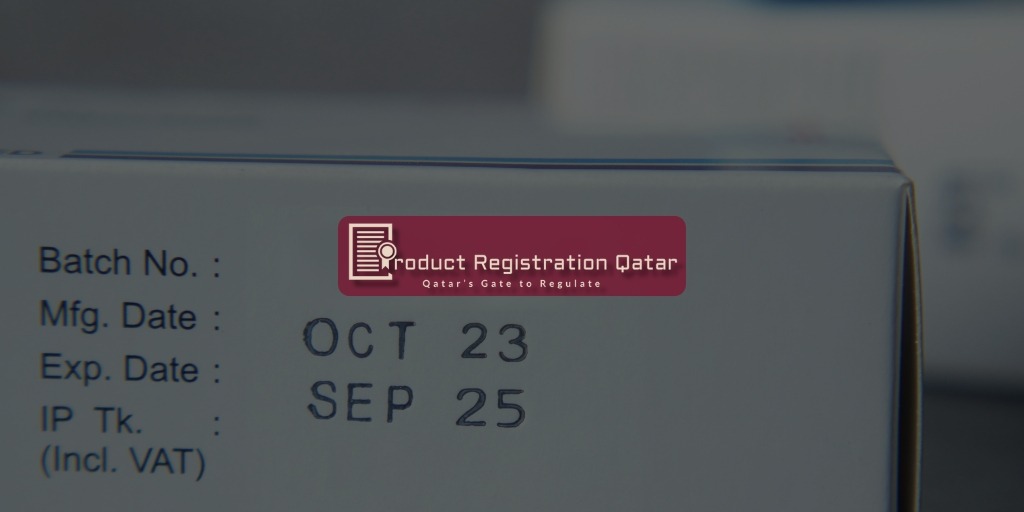Shelf Life and Expiry Rules in Qatar for MoPH Approval
Avoid rejection at customs. Learn shelf life and expiry rules in Qatar for MoPH approval, including labeling formats and remaining shelf life limits.
BLOGS
7/9/20253 min read


Shelf Life and Expiry Rules for MoPH Approval in Qatar
Understanding shelf life and expiry labeling is not optional in Qatar — it is a strict regulatory requirement enforced by the Ministry of Public Health (MoPH) and Qatar Customs.
Products that fail to meet shelf life, expiry format, or remaining validity rules are frequently delayed, rejected, or destroyed at the port of entry.
This guide explains how shelf life rules work in Qatar and how to avoid common mistakes that lead to rejection.
Why Shelf Life Is a Common Cause of Rejection
Many product rejections in Qatar are not related to safety concerns, but to incorrect expiry formats, missing Arabic information, or insufficient remaining shelf life at customs clearance.
Even products approved in other markets can be rejected if shelf life documentation does not match MoPH and customs requirements exactly.
What Is Shelf Life and Why Does It Matter in Qatar?
Shelf life refers to the period during which a product remains safe, effective, and compliant under proper storage conditions.
In Qatar, shelf life is treated as a compliance checkpoint rather than a quality claim. MoPH requires that shelf life:
Is clearly stated in both Arabic and English
Matches validated laboratory stability data
Is approved before customs clearance
Products with unclear expiry dates, short remaining shelf life, or unsupported stability claims may be rejected or destroyed at entry.
MoPH Labeling Requirements for Expiry Dates
Product labels submitted for MoPH approval must clearly include:
Manufacturing date (MFG)
Expiry date (EXP)
Shelf life duration, where applicable
All dates must follow a clear DD/MM/YYYY format and appear in both Arabic and English. Vague wording, such as “Best Before” or missing Arabic translation, often results in halted registration or customs delays.
How Shelf Life Is Validated in Qatar
Before granting MoPH approval, authorities may request:
Real-time or accelerated stability test results
Defined storage conditions
Packaging and container compatibility data
Accredited third-party laboratory reports
For cosmetics and supplements, additional testing may assess microbial stability, ingredient degradation, and packaging interaction over time. These results determine the officially approved shelf life.
Minimum Remaining Shelf Life at Customs Clearance
Qatar Customs enforces minimum remaining shelf life thresholds at the time of import:
Food and beverages: At least 50% of total shelf life remaining
Supplements and cosmetics: Commonly 12 months or more remaining
Short shelf life products: May require rapid clearance or special authorization
Products that do not meet these thresholds are not permitted entry, even if previously approved.
When Shelf Life Becomes High-Risk
Shelf life risk increases when products have short validity periods, complex storage requirements, or packaging that affects product stability.
In these cases, even small discrepancies between labels, stability data, and shipping timelines can result in rejection or forced destruction at customs.
Shelf Life Planning Before Import: What Authorities Expect
Before products are shipped to Qatar, authorities expect shelf life planning to be completed at both the documentation and logistics levels.
This includes aligning stability data with the actual production batch, verifying that expiry dates match the approved formulation, and ensuring that shipping timelines do not reduce remaining shelf life below customs thresholds.
Products manufactured close to their expiry date often face higher scrutiny, especially when shipping routes are long or involve multiple transit points.
MoPH and customs officers assess whether the remaining shelf life at arrival realistically allows safe distribution, storage, and consumer use within Qatar.
Shelf Life, Storage Conditions, and Market Reality
Shelf life approval is always linked to declared storage conditions. Products labeled for ambient storage but transported or stored under uncontrolled temperatures may be questioned during inspections.
For sensitive products such as supplements, cosmetics, and functional foods, authorities may compare declared storage conditions with shipping methods, warehouse environments, and retail shelf conditions.
Any mismatch between stability assumptions and real-world handling increases regulatory risk.
Proactively aligning shelf life data, storage instructions, and logistics planning significantly improves approval confidence and reduces post-import compliance issues.
How Product Registration Qatar Supports Shelf Life Compliance
We help businesses avoid shelf life-related rejection by providing:
Stability testing coordination with accredited laboratories
MoPH-compliant expiry labeling and Arabic translation
Pre-clearance reviews for customs shelf life requirements
Advisory on packaging, storage conditions, and expiry claims
Whether launching a new product or reformulating an existing one, proper shelf life planning protects your approval and market entry.
Final Takeaway
Shelf life compliance directly affects MoPH approval, customs clearance, and product survival in the Qatari market.
Getting shelf life wrong leads to costly delays and rejection. Getting it right ensures faster approval and smoother market access.
Continue reading:
Struggling with label compliance? Read Label vs. Formula Validation for MoPH Qatar.
Need faster approvals? See Why Product Testing Is Required Before MoPH Approval.
Planning ahead? Learn more in Technical Translation for MoPH Registration in Qatar.
Secure MoPH approval before importing to Qatar to stay compliant.
Learn how to gather a compliant product dossier for MoPH and MENAT approvals.
For guidance on shelf life or regulatory questions, chat with our team now or book a free consultation.
Ready to Ensure Your Product is Fully Compliant?
Fill out the form below and let our experts guide you through label checks, formula validation, and registration—step by step.


